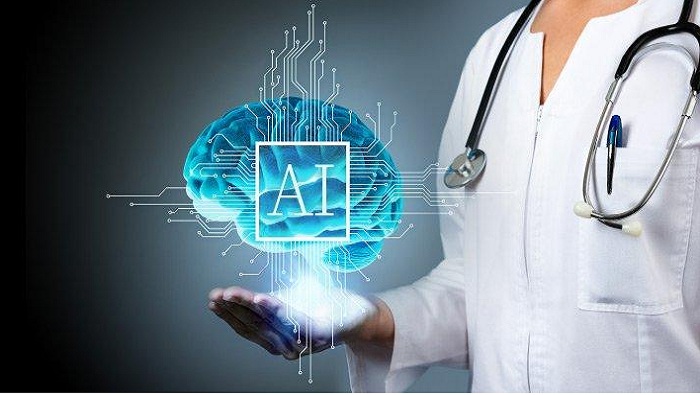While the impacts of artificial Intelligence (AI) and machine learning may be most noticeable in consumer digital services like social media and online shopping, it is quite breathtaking to see how quickly it is now being taken up by the healthcare industry.
Machine learning – a key part of AI where computer algorithms automatically improve through experience – has been called upon to leverage healthcare data to help deal with many of the challenges COVID-19 has presented.
Public health systems have turned to machine learning to complement their contact tracing and other efforts to control the disease and track outbreaks. Private healthcare operators have embraced machine learning to remain competitive when faced with a drop in demand for elective surgery or, in many countries, a reluctance or inability to visit hospitals or clinics.
The pace of AI and machine learning adoption is also accelerating in hospitals. According to a recent IDC study of 210 hospitals in the US, UK and Germany, half already have an AI framework in place and the rest plan to be online within 24 months. The study found that reading images to assist with diagnoses (30% of hospitals) and early identification of hospital-acquired infection (30%) were among the top three use cases for AI.
Positive engagement with clinicians
For example, Mercy Radiology in New Zealand, working with Ferrum AI, has deployed two AI algorithms which use machine learning to improve over time with use. Operating in a second read capacity for radiologists, the two use-cases are in lung nodules on CT scans and limb fractures on X-ray. The algorithms have improved the quality of reporting and “ there has been positive engagement from clinicians as well, ” says Lloyd McCann, CEO of Mercy Radiology and Head of Digital Health for Healthcare Holdings Limited.
Despite a clear trend towards AI in healthcare, however, some experts are sceptical and say that machine learning in particular has been overhyped. Part of the problem is that it has been seen as a panacea for problems without much understanding of how it worked. And while machine learning has made progress in relation to some problems during the pandemic, it has not lived up to all the expectations in others.
At InterSystems, we believe these teething problems will be rapidly overcome. While some people still see machine learning as a magical “black box”, the technology and the algorithms it produces have become easier to explain and understand with increased use. There is also more appreciation of the importance of high quality “training data” used to build the models for machine algorithms. Together, these factors are leading to greater credibility and success when it comes to treating hospital patients.
Machine learning for smarter triage
One area where we expect to see widespread advancements is in hospital triage. Most triage systems rely on simple risk scoring systems with a small number of variables to identify which patients need immediate attention or access to higher acuity resources.
Machine learning increases the number of variables which can be taken into account to make smarter triage decisions. At Northwell Health – with 23 hospitals, New York State’s largest healthcare provider – machine learning is making better use of resources and improving patient experience. The technology is used to identify patients who need to be woken up to take their vitals versus those stable enough to sleep through the night.
At the beginning of the pandemic, Epic developed a machine learning model to scan health records and alert doctors automatically to help doctors intervene with life-saving care before hospitalised patients deteriorate. Hundreds of hospitals are using the predictive model which evaluates patients’ risk of getting sicker in real time by tracking thousands of pieces of data generated by heart rate, blood pressure, temperature and other monitors.
Lack of quality data must be addressed
As hospitals ramp up machine learning projects, among the biggest limits they face is not a lack of understanding, but a lack of quality data. According to the IDC study, two of the top five barriers to successful AI adoption were related to data: trustworthiness/bias of data (28%) and lack of adequate volumes of quality training data (26%).
InterSystems believes it is essential to prioritise healthcare data interoperability and data-cleansing so that it’s usable in machine learning. With the HL7 FHIR®(Fast Healthcare Interoperability Resources) standard, secure data sharing is becoming easier. In addition, many hospitals have already put the frameworks in place to ensure that AI is being used properly. In the IDC study, 58 percent of hospitals indicated that they already have AI-specific data governance and management policies and procedures in place.
“Healthcare leaders must invest now in their data quality and push for clean, harmonised data in order to implement and get the most out of their AI tools,” says Cynthia Burghard, IDC Research Director for Value-based Healthcare IT Transformation Strategies.
AI and machine learning’s moment in healthcare has definitely arrived. With better understanding of how to use it, and investment in interoperability and data-cleansing solutions to support it, the gap between expectations and reality will only shrink.




















